New sports at the 2024 Olympics: climbing
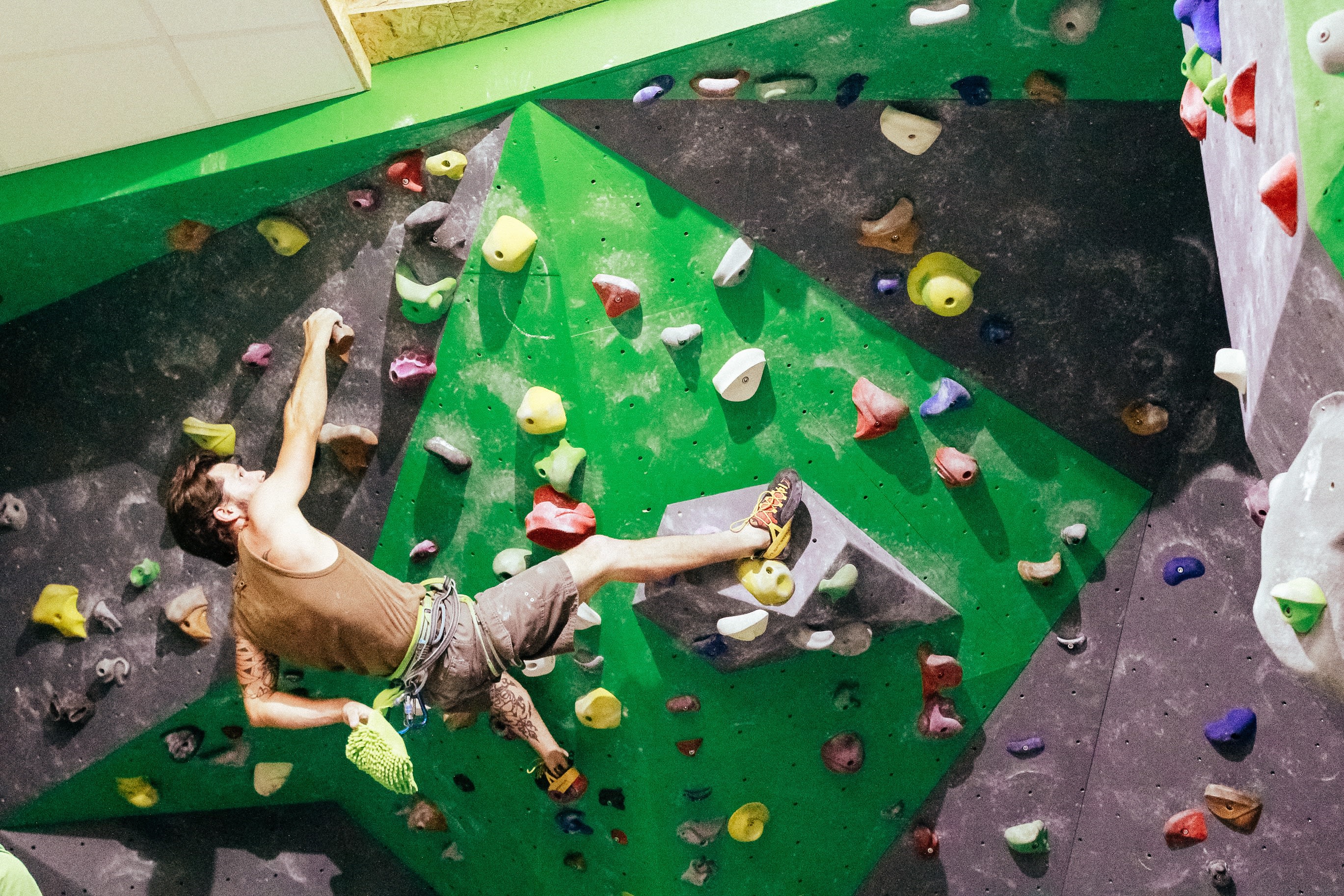
Climbing's Olympic history began at the Tokyo Olympic Games in 2020. Initially included as an additional discipline at the Games, climbing was renewed in 2024, and will also be included at the next edition, in Los Angeles in 2028.
Climbing has its origins in mountaineering in the 19th century, with the first high mountain expeditions and the ascent of Napes Needle (in England) by Walter Parry Haskett Smith, a decisive turning point for the discipline.
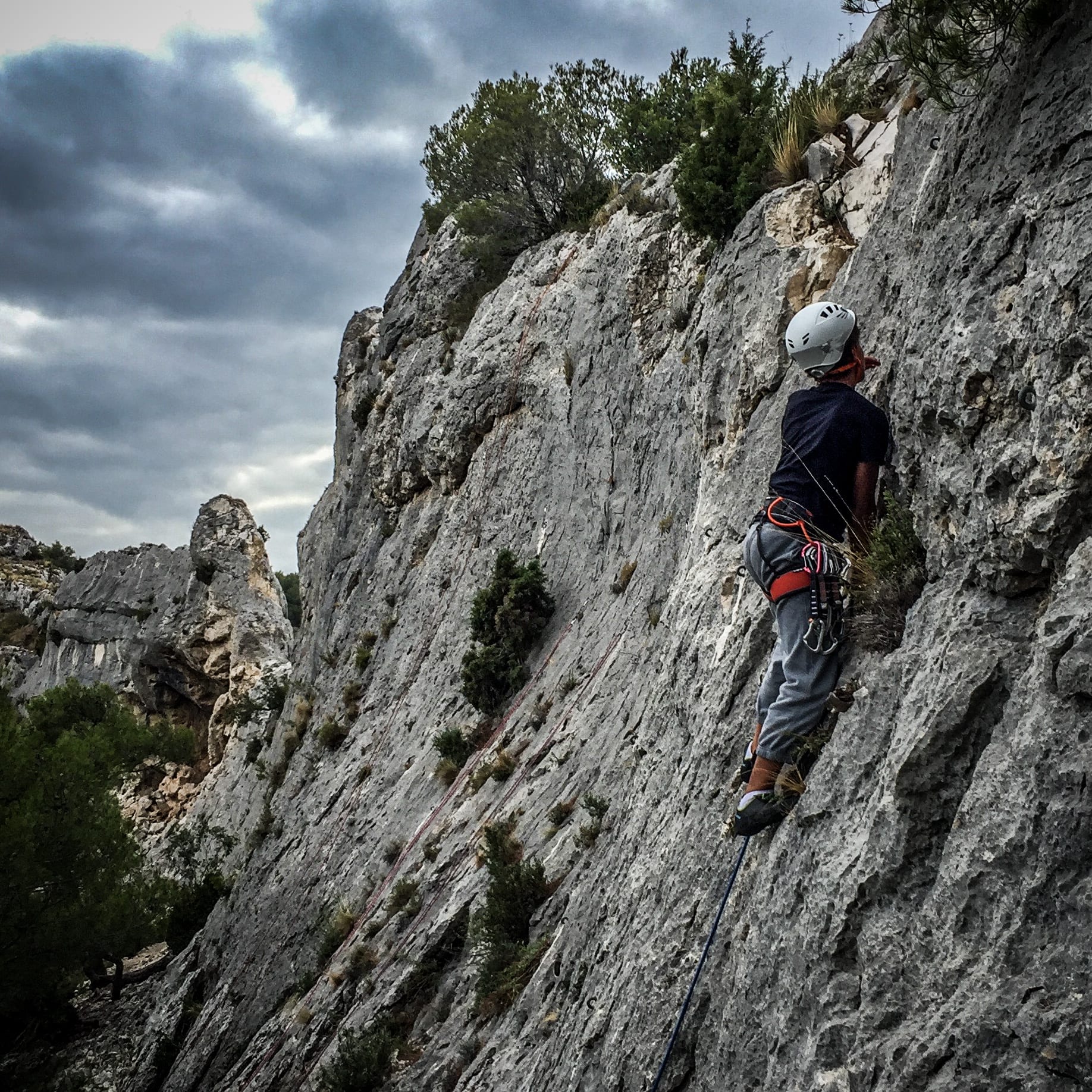
It was in the 1980s that competitive climbing was born, with the very first international difficulty competition organised in 1985 in Bardonecchia (Italy) and held on artificial walls. It has since become a little more similar to what we know today, in particular with the diversification of events: difficulty climbing, bouldering and speed climbing.
It wasn't until 2007 that the International Climbing Federation was created. It will standardise all the rules and work to develop international competitions that will contribute to the democratisation of the sport.
Today, especially in terms of Olympic competition, a distinction must be made between indoor climbing and outdoor climbing. In fact, outdoor climbing is not on the Olympic programme, and even if many indoor climbers envisage climbing cliffs afterwards. The techniques are actually rather different, mainly because on natural sites you won't find any predefined holds to guide you. And the equipment is not the same: to climb cliffs and mountains, you absolutely must wear a helmet, which will come in very handy!
Whether you're a beginner or an experienced climber, there are climbing centres staffed by people who are passionate about the sport. They'll welcome you and guide you through your adventure in complete safety, so you can enjoy a unique experience! In France, you'll find numerous climbing sites in the heart of a fantastic natural environment, such asthe calanques national park in Marseille, but you can also findclimbing activitiesin the Gorges du Tarn, one of the best places for climbing in a natural environment in France.
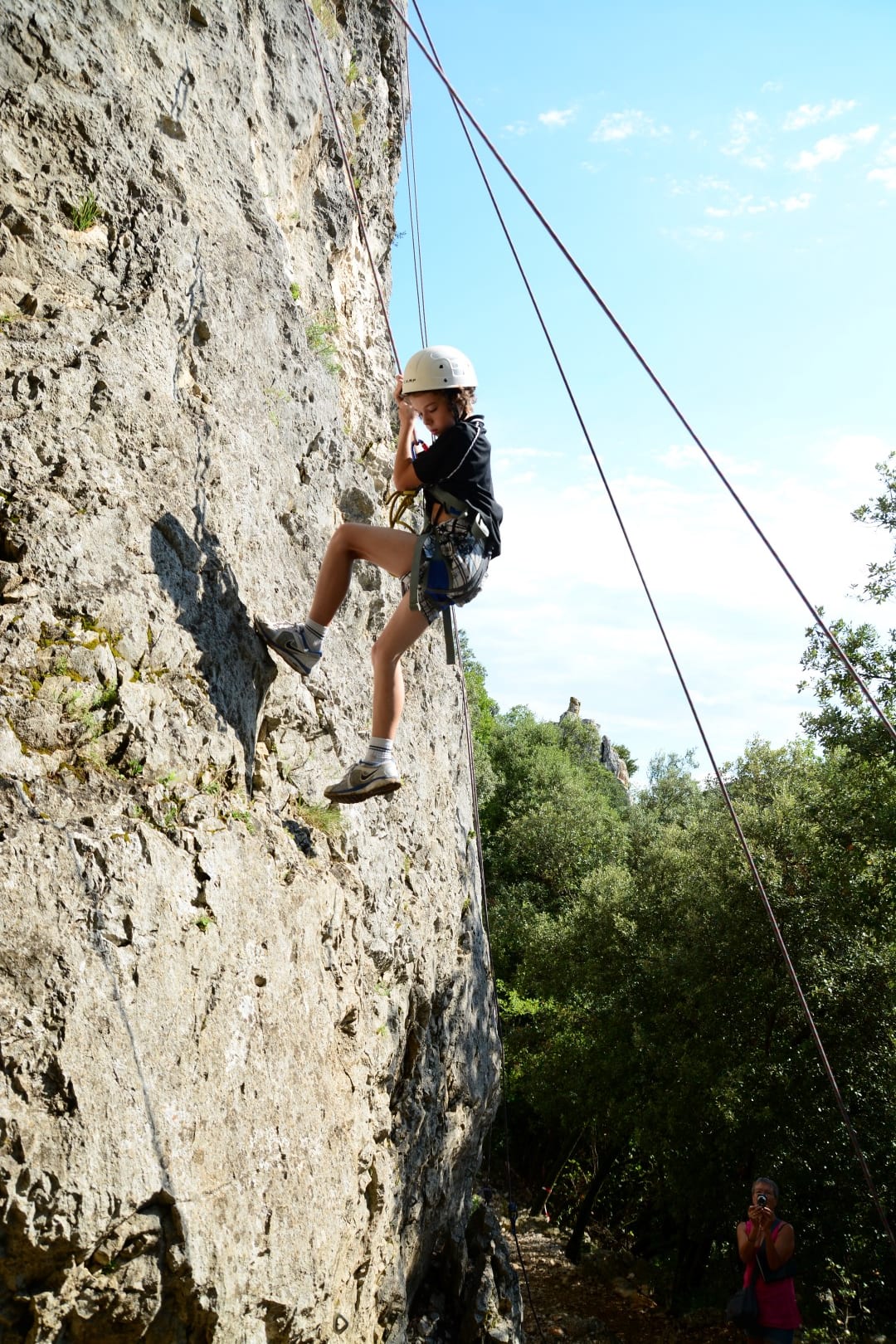
A truly demanding sport requiring many different qualities, competitive climbing at the Olympic Games combines several disciplines:
1. Block
The 'bouldering' event involves climbing a route approximately four metres high without a harness or rope to solve problems consisting of complex movements requiring strength, flexibility and analysis of the route, which the climbers discover when they enter the competition. Competitors are given four minutes to validate the zones and/or go to the top with as few attempts as possible.
2. Difficulty
The "difficulty" discipline focuses on the height and difficulty of the routes. Athletes must attempt to climb as high as possible a wall 15 metres high and almost 7 metres down in just 6 minutes. The goal? To reach the top of the modules. If more than one athlete reaches the top of the wall, the timekeeper will decide between them.
3. Speed
In this discipline, climbers have to climb a standardised route as quickly as possible. Speed routes are equipped with identical holds and are generally climbed using a specific technique known as "speed climbing". Two competitors compete in parallel on mirror routes, and the one who reaches the top first is declared the winner.
The best male athletes manage to climb a wall inclined at 5 degrees over a distance of 15 metres in less than 6 seconds, while the best female athletes manage it in less than 7 seconds.
For the Paris Olympics in 2024, the rules for who wins will be slightly different. Whereas for the Tokyo Olympics, climbers competed in all three disciplines, and a single Olympic champion was crowned, for those in Paris there will be two very distinct climbing events: a speed event and an event that combines bouldering and difficulty.
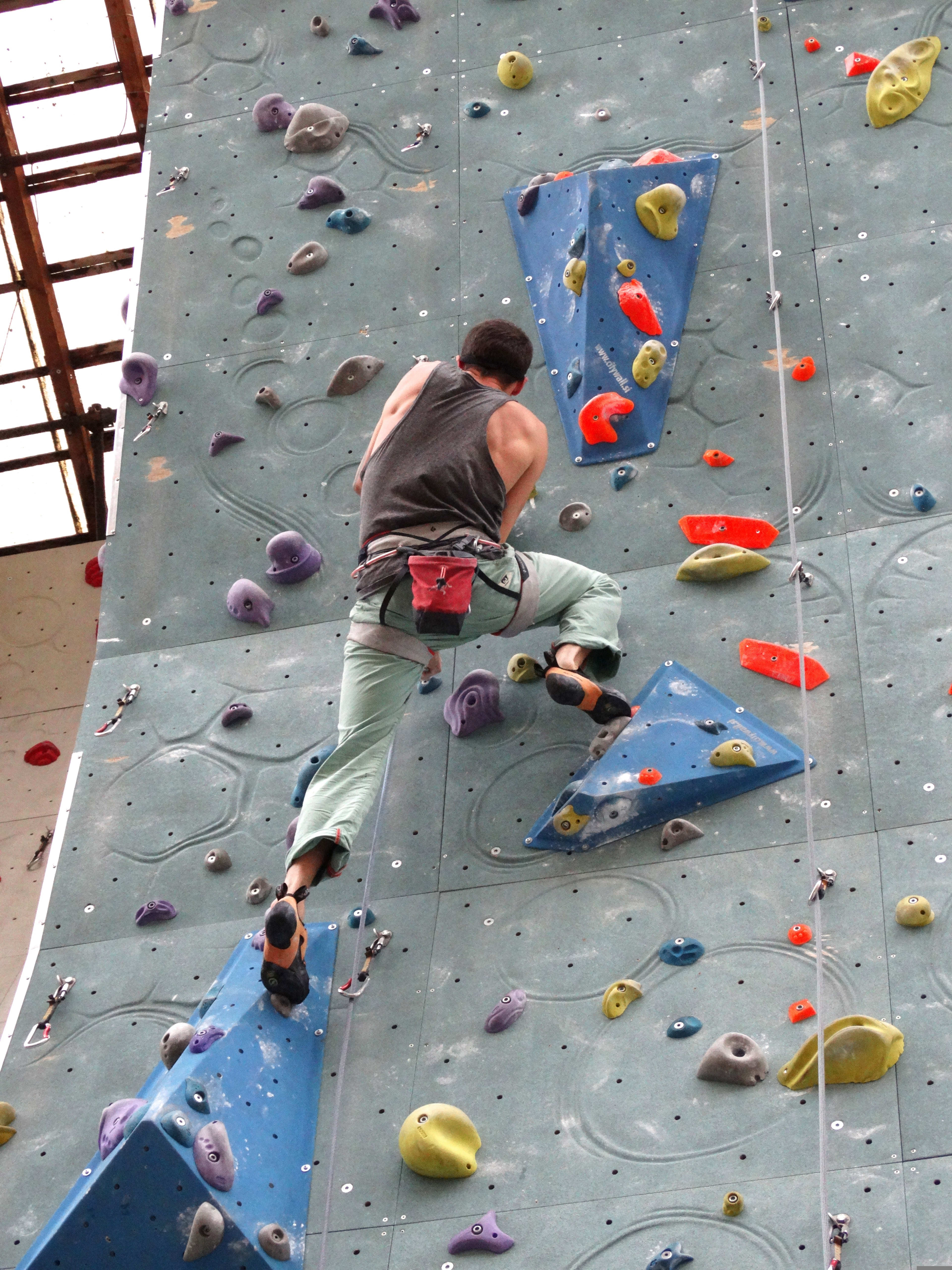
Some great climbers will be on show at the Paris Olympics!
In the women's event, Janja Garnbret, the reigning Olympic champion, who dominates the competitive climbing scene and has a worldwide reputation, will be one of the athletes to watch. We can also count on the presence of Aleksandra Miroslaw, double world champion and world record holder for speed with a time of 6.40 seconds! Last but not least, Miho Nonaka, a talented Japanese climber, stands out for her grace and determination on the climbing wall. A specialist in bouldering and difficulty, she is known for solving the most difficult climbing problems. Miho Nonaka is considered to be one of the best female climbers in the combined climbing discipline. There is no doubt that she will be looking to win a medal for her country at the Paris 2024 Olympic Games.
On the men's side, Alberto Ginés López, aged just 21, has already made a name for himself in the world of sport climbing and was crowned Olympic champion at the last edition of the Olympics aged just 18. The Czech Adam Ondra, widely considered to be the world's most complete climber, will have to prove himself if he is to secure his entry ticket and hope to do better than at the last edition, when he finished only sixth. And last but not least, Austrian climber Jakob Schubert, who finished third at the Tokyo Olympics in 2021, is a specialist in difficulty and will be one of the toughest competitors in the combined bouldering and difficulty event in Paris in 2024.
To help you understand sport climbing before the competition starts in August, here are a few terms to help you understand the movements specific to this discipline:
- Handhold: The first step on any climbing route is to find and grasp the first handhold. This hold is crucial for starting the climb.
- Foothold: Once the handhold is secure, the climber looks for a stable foothold to establish a solid, balanced base before continuing.
- Crocheting: Crocheting is a technique in which the climber uses the tip of his foot to hook onto a handhold or foot to facilitate progress.
- Blocking: Blocking consists of locking a part of the body, usually the arms or legs, on a hold to stabilise the position and take a break before continuing.
- Foulée: The foulée is a movement technique in which the climber extends one leg far to the side to reach a foothold further away.
- Ruler: A ruler is a small flat or angled grip that requires a specific finger force to hold.
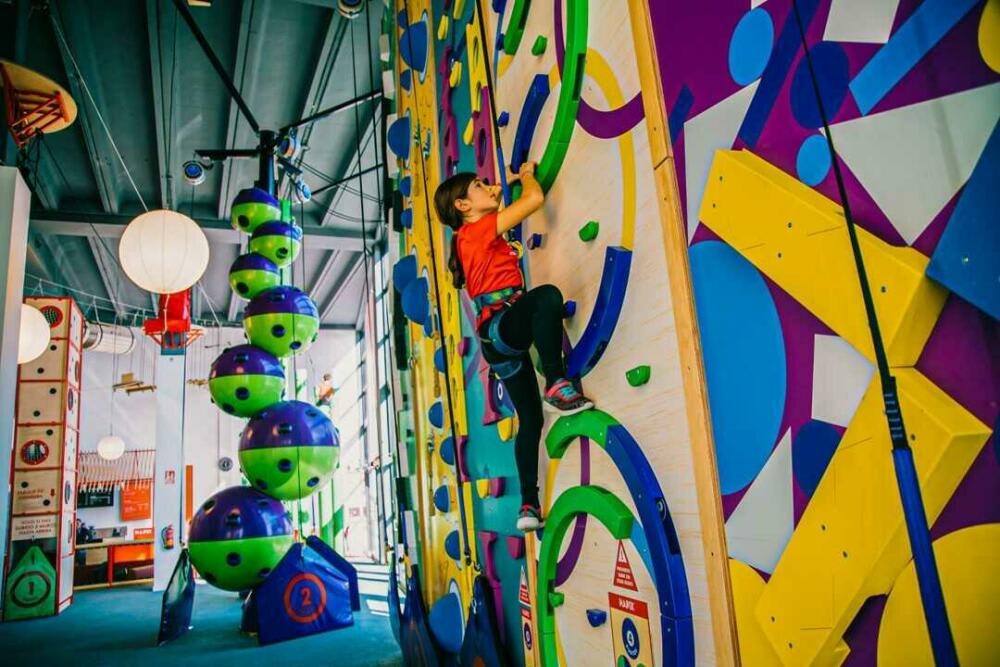
Now in its second year as an official event at the Olympic Games, competitive climbing is set to put on a great show for fans of this fast-growing sport, and perhaps even whet your appetite for the sport itself. If you're interested in taking up climbing, take a look at our advice on how to get started!
Will you be attending the Paris 2024 Olympic Games and has the event inspired you to give it a go? Come and try your hand at indoor or outdoor climbing near Paris!